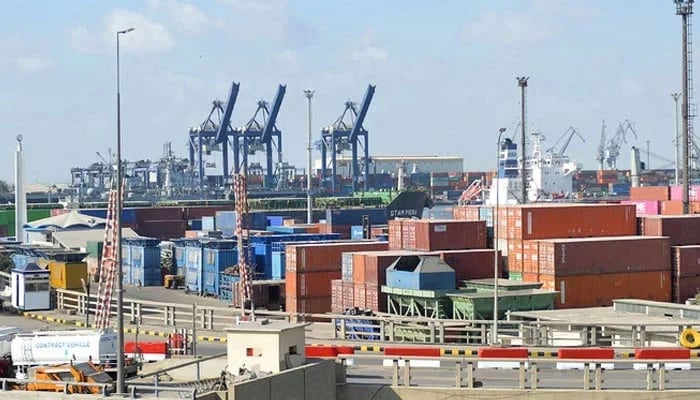Averting Pakistan’s crises
Governments at centre and provinces lack popular legitimacy that is deeply essential to enable Pakistan to tackle some of toughest challenges that country faces
A week after the gruesome terrorist attacks across Balochistan shook Pakistan, the country’s quest for stability needs multiple actions well beyond the mere promises given by Prime Minister Shehbaz Sharif and other leaders.
In effect, the crisis is far graver than the lip service offered this week, effectively words that have been repeated by leaders previously too following similar bloodshed.
The congruence of Pakistan’s sliding security conditions with the country’s political and economic disarray raises questions about the future of society. As Pakistan seeks to avert the many crises all over, the country’s ability to overcome the turmoil remains increasingly in question.
The controversy triggered by the outcome of this February’s parliamentary elections has only deepened, fueling widespread scepticism over Pakistan’s political future.
For the moment, the governments at the centre and the provinces lack the popular legitimacy that is deeply essential to enable Pakistan to tackle some of the toughest challenges that the country faces. With popular sentiment deeply detached from the ruling structure, the ability of the country’s rulers to steer the country through present and future turbulence remains in serious doubt. The troubling questions over political legitimacy will not make it any easier for Pakistan to undertake the vast economic adjustments that will inevitably come along with the upcoming IMF loan programme, and other foreign bail-outs.
The economic outlook has already been tarnished with a widespread rejection of this year’s annual budget, popularly seen as inflicting more pain upon the already taxed without an aggressive push to target segments of the high and mighty, who remain partially or fully immune from bearing the burden. And aside from the chorus of all is well coming from national and provincial leaders, there is little buy-in to the official mantra across the grassroots of Pakistan.
With the multiple burdens ranging from rapidly jumping utility costs to mounting price hikes across the board, there is no joy for Pakistan’s badly stung average households. In this background, meeting key parts of an essential national agenda raises some doubts. In recent months, the all too visible gaps have been far too exposed.
As Punjab marches ahead with ambitious development plans, the crisis within the province and beyond has rapidly escalated. The Punjab government’s decision to refuse to purchase wheat from farmers at its promised price hit farmers the hardest in years. Eventually, farmers were forced to sell their produce at a price which was 25 per cent or more below the government’s advertised rate, effectively adding to Pakistan’s rural poverty.
In Balochistan, meanwhile, there is growing turmoil and little evidence of the government’s largesse available to translate into infrastructure spending across the province. Consequently, the use of economic tools to begin protecting the local population from becoming further radicalized is just not a policy option.
Rain-drenched Karachi has further exposed elements of infrastructure coming apart in Pakistan’s largest city, once prized as the country’s business capital and popularly known as the ‘city of lights’. Today, the era of lights has been overtaken by darkness without a financial plan to solve Karachi’s multiple challenges.
In this background, Pakistan needs a renewed push towards creating national unity followed by undertaking unprecedented reforms, seldom seen in the country’s history.
For the moment, it is abundantly clear that the ruling structures led by the federal government and Pakistan’s provinces have only failed to rally the broad spectrum of the public behind them, to head towards a qualitatively better new future. Without successfully addressing the multiple challenges, averting Pakistan’s crises and blocking further radicalization of society will remain unfulfilled targets.
-
 Lana Del Rey Announces New Single Co-written With Husband Jeremy Dufrene
Lana Del Rey Announces New Single Co-written With Husband Jeremy Dufrene -
 Ukraine-Russia Talks Heat Up As Zelenskyy Warns Of US Pressure Before Elections
Ukraine-Russia Talks Heat Up As Zelenskyy Warns Of US Pressure Before Elections -
 Lil Nas X Spotted Buying Used Refrigerator After Backlash Over Nude Public Meltdown
Lil Nas X Spotted Buying Used Refrigerator After Backlash Over Nude Public Meltdown -
 Caleb McLaughlin Shares His Resume For This Major Role
Caleb McLaughlin Shares His Resume For This Major Role -
 King Charles Carries With ‘dignity’ As Andrew Lets Down
King Charles Carries With ‘dignity’ As Andrew Lets Down -
 Brooklyn Beckham Covers Up More Tattoos Linked To His Family Amid Rift
Brooklyn Beckham Covers Up More Tattoos Linked To His Family Amid Rift -
 Shamed Andrew Agreed To ‘go Quietly’ If King Protects Daughters
Shamed Andrew Agreed To ‘go Quietly’ If King Protects Daughters -
 Candace Cameron Bure Says She’s Supporting Lori Loughlin After Separation From Mossimo Giannulli
Candace Cameron Bure Says She’s Supporting Lori Loughlin After Separation From Mossimo Giannulli -
 Princess Beatrice, Eugenie Are ‘not Innocent’ In Epstein Drama
Princess Beatrice, Eugenie Are ‘not Innocent’ In Epstein Drama -
 Reese Witherspoon Goes 'boss' Mode On 'Legally Blonde' Prequel
Reese Witherspoon Goes 'boss' Mode On 'Legally Blonde' Prequel -
 Chris Hemsworth And Elsa Pataky Open Up About Raising Their Three Children In Australia
Chris Hemsworth And Elsa Pataky Open Up About Raising Their Three Children In Australia -
 Record Set Straight On King Charles’ Reason For Financially Supporting Andrew And Not Harry
Record Set Straight On King Charles’ Reason For Financially Supporting Andrew And Not Harry -
 Michael Douglas Breaks Silence On Jack Nicholson's Constant Teasing
Michael Douglas Breaks Silence On Jack Nicholson's Constant Teasing -
 How Prince Edward Was ‘bullied’ By Brother Andrew Mountbatten Windsor
How Prince Edward Was ‘bullied’ By Brother Andrew Mountbatten Windsor -
 'Kryptonite' Singer Brad Arnold Loses Battle With Cancer
'Kryptonite' Singer Brad Arnold Loses Battle With Cancer -
 Gabourey Sidibe Gets Candid About Balancing Motherhood And Career
Gabourey Sidibe Gets Candid About Balancing Motherhood And Career




